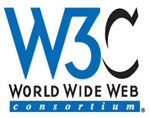Semantic web adds a touch of SPARQL
Web standards body launches key query technology to give search 'context' and promote development of web-based information sharing systems.


The World Wide Web Consortium (W3C) has published SPARQL (pronounced 'sparkle') query technology specifications, designed to open up data access on the semantic web.
The SPARQL protocol and resource description framework (RDF) query language is used for storing or retrieving data stored in an RDF format. It enables applications or relational databases queries across distributed data source or to add new ones, independent of format, without writing logic to merge the results.
"Trying to use the Semantic Web without SPARQL is like trying to use a relational database without SQL," explained Tim Berners-Lee, W3C director. "SPARQL makes it possible to query information from databases and other diverse sources in the wild, across the web."
Lee Feigenbaum, chair of the W3C RDF data access working group said: "SPARQL's focus on querying the data models saves time for developers; there's no need for a host of little web services to retrieve different aspects of the state of a system."
The SPARQL specification defines a query language and a protocol and works with the other core semantic web technologies from W3C including its RDF format for representing data; RDF Schema; Web Ontology Language (OWL) for building vocabularies; and Gleaning Resource Descriptions from Dialects of Languages (GRDDL), for automatically extracting semantic web data from documents.
SPARQL also makes use of other W3C standards found in Web services implementations, such as Web Services Description Language (WSDL). And because it is has no ties to any specific database format or standard like SQL or XQuery, it is designed to also take advantage of web 2.0 data and mash-up development techniques.
Berners-Lee has, in the past, advocated enterprise involvement in semantic web development to build ontologies to deliver more dynamic, accurate and rich SPARQL-based searches from trusted sources, by industry or profession for example.
Get the ITPro daily newsletter
Sign up today and you will receive a free copy of our Future Focus 2025 report - the leading guidance on AI, cybersecurity and other IT challenges as per 700+ senior executives
The W3C has issued a report on the 14 known SPARQL implementations, many of which are open source.
A 25-year veteran enterprise technology expert, Miya Knights applies her deep understanding of technology gained through her journalism career to both her role as a consultant and as director at Retail Technology Magazine, which she helped shape over the past 17 years. Miya was educated at Oxford University, earning a master’s degree in English.
Her role as a journalist has seen her write for many of the leading technology publishers in the UK such as ITPro, TechWeekEurope, CIO UK, Computer Weekly, and also a number of national newspapers including The Times, Independent, and Financial Times.
-
 Bigger salaries, more burnout: Is the CISO role in crisis?
Bigger salaries, more burnout: Is the CISO role in crisis?In-depth CISOs are more stressed than ever before – but why is this and what can be done?
By Kate O'Flaherty Published
-
 Cheap cyber crime kits can be bought on the dark web for less than $25
Cheap cyber crime kits can be bought on the dark web for less than $25News Research from NordVPN shows phishing kits are now widely available on the dark web and via messaging apps like Telegram, and are often selling for less than $25.
By Emma Woollacott Published